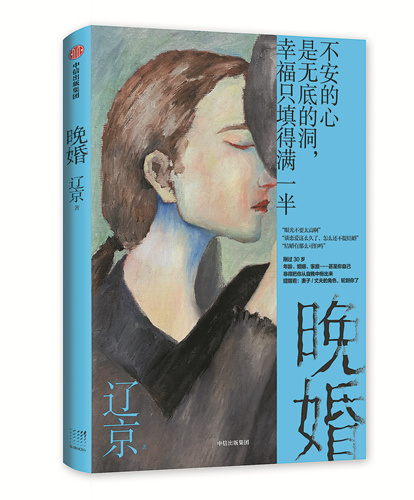

The lack of self-confidence and paranoia drive her to secretly check Yang's phone, fearing that he's having an affair despite his unwavering support over the years, such as helping her to tackle her teenage sister's accidental pregnancy, supporting her when she is abruptly laid off and letting her move in with him after she is evicted by her landlord.
Still, she questions his motives, even asking whether he married her just because his mother is severely ill.
An interesting thing about the novel is all of the readers' knowledge about Yang comes from Huang's perspective and her speculation, which reflect the real differentiation in the way people of different genders think. It has become a frequent topic on social media, especially at a time when young people are finding it harder to build relationships.
The author didn't want to present a main female character that would be widely beloved by readers, but an adult whose cowardice and irresolution in work and life may be found in any one of us.
Huang's controlling nature toward her younger sister has its roots in her lack of unconditional love during childhood, and she just wants her sister to get a proper education, find a good job and leave their parents behind just as she did.
On the contrary, her best friend Ling Qing is easygoing and unrestrained, navigating a promising career and enjoying herself in a relationship, but not bound to get married. She comes from a loving home, in which her parents have kept many memories and favorite items from her childhood in their basement.
It doesn't take long for one to realize that the pair-best friends since their college days-have reached a fork in the road. While Ling pursues more freedom, Huang tries her best to preserve what she has accumulated through her hard work and effort, already feeling too exhausted to achieve more.
Despite some questionable working practices, Ling leads a life many modern city women wish they could have but don't have access to, whereas many readers might find it difficult to understand Huang's personality and sensitivity at all.
The comparison also exists in reality, Ji says, adding that the final question the novel poses is whether it is wiser to keep trying to shine a light into people's darker side and uncover truths that one might not want to face, or to just turn a blind eye to maintain a peaceful life.
Or, rather, it's about whether to persist in trying to find a solution to a problem that can't be fixed immediately, or working around it and letting it be.
One reader comments on Chinese review site Douban: "The author depicts the tiny life details and ordinary, but shady, thoughts so vividly. Still, I was constantly moved by the not-bright-enough real life."
Ji, a former journalist, chose to raise her son full time not long after he was born. For around seven years, she spent her fragmented time between housework, reading and writing, first online and then as a published author.
It's the first time she has tried a full-length novel. The challenge comes from creating realistic characters, which later actually becomes a highlight, as the author accurately zooms in on something that readers vaguely feel, but cannot clearly define.
"The power of words lies in things unspoken," the author says. "The way Huang deals with her desire to communicate and understand is like a fishbone stuck in the throat."
She says of the appealing time before the desk: "I wrote about the character because there was something I couldn't figure out about her, and it was through writing that I gradually got to know her."